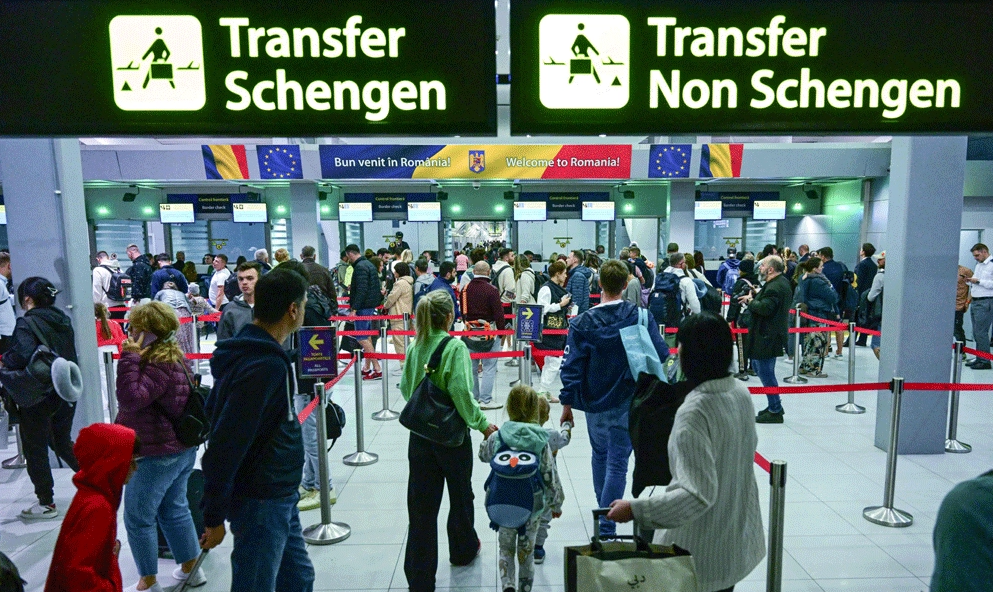Bulgaria and Romania Step into Schengen: A New Era of European Travel Begins
After a 13-year wait, Bulgaria and Romania are set to partially enter the Schengen area, marking a significant milestone in European integration. While land borders remain controlled, the opening of air and sea travel symbolizes a triumph of unity and progress.

Photo source: https://www.daily-sun.com/
BUCHAREST – After a 13-year wait, Bulgaria and Romania are set to partially join Europe’s expansive Schengen area on Sunday, allowing air and sea travel without border checks.
However, land border controls will remain due to Austria’s opposition, driven by concerns over a potential surge in asylum seekers if the two Eastern European countries were to gain full Schengen membership.
Despite this limited membership, the removal of air and sea border controls is highly symbolic. Admission to Schengen marks an “important milestone” for Bulgaria and Romania, representing a matter of dignity and belonging to the European Union, according to foreign policy analyst Stefan Popescu. “Any Romanian who had to walk down a lane separate from other European citizens felt being treated differently,” Popescu told AFP.
Expansion to 29 Members Starting Sunday, the Schengen zone will include 29 members: 25 EU states, along with Switzerland, Norway, Iceland, and Liechtenstein. In Romania, Schengen rules will apply to four sea ports and 17 airports, with Otopeni airport near Bucharest becoming the largest hub for Schengen flights. To facilitate this transition, more staff, including border police and immigration officers, will be deployed to airports to support passengers and prevent illegal departures from Romania. Random checks will be conducted to detect false documents and combat human trafficking, including minors.
Bulgaria and Romania aim for full Schengen integration by the end of the year, but Austria has only agreed to their air and sea inclusion. Croatia, which joined the EU after Bulgaria and Romania, became Schengen’s 27th member in January 2023. Established in 1985, the Schengen area allows over 400 million people to travel freely without internal border controls.
An Irreversible Process While many celebrate this milestone, truck drivers, who face long queues at European borders, feel overlooked. Earlier this month, a major Romanian road transport union called for urgent measures for full Schengen integration, citing significant financial losses due to long border waits. “Romanian hauliers have lost billions of euros every year, just because of long waiting times at borders,” said Radu Dinescu, the union’s secretary-general. Truckers often wait 8 to 16 hours at the Hungary border and 20 to 30 hours at the Bulgarian border, sometimes peaking at three days.
Bulgarian businesses have also expressed frustration over the slow progress. “Only three percent of Bulgarian goods are transported by air and sea; the remaining 97 percent by land,” said Vasil Velev, president of the Bulgarian Industrial Capital Association (BICA). “So we’re at three percent in Schengen and we don’t know when we’ll be there with the other 97 percent.”
Despite the partial integration, Bucharest and Sofia are committed to completing the process. “There is no doubt that this process is irreversible,” Romanian Interior Minister Catalin Predoiu said, adding it “must be completed by 2024 with the extension to land borders.”






